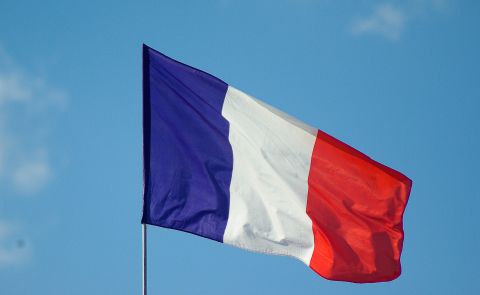
Armenian-Russian Crisis? Media close to the Kremlin accuses Pashinyan’s Grandfather of Nazi Collaboration
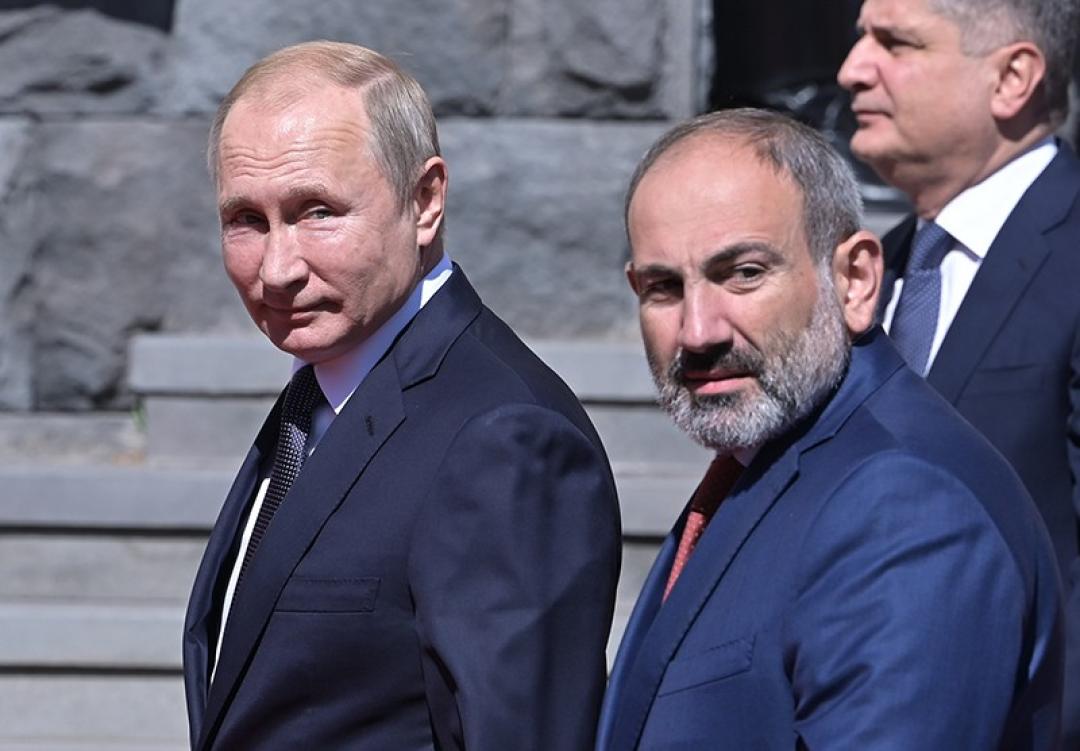
Many politicians in Russia became suspicious when in the small Caucasus republic of Armenia, a nonviolent revolution took place, removing Serzh Sargsyan’s government and bringing the ambitious opposition politician Nikol Pashinyan to power. At the expert level and in the media, there has been concern about if it was once again a pro-Western “color revolution” in an former Soviet state? A revolution that could potentially drive one of Moscow's few remaining allies out of its geopolitical sphere of influence. However, the new Armenian government quickly clarified that this was not a “color revolution” and would in no way affect the alliance relations between Yerevan and Moscow [i]. On the contrary, the relations would continue to develop and reach a new level [ii].
Despite Pashinyan's once critical stance towards the Eurasian Economic Union (EAEU) led by Russia, Armenia showed its willingness to increase its role in the EAEU and to make its own membership “more efficient and useful” [iii]. The new Armenian government even sent a mission to Syria to reaffirm its geopolitical orientation towards Russia. A move that the previous government was not willing to make, even though it was quite loyal to Russia. Russia and Syria welcomed the initiative while the United States condemned the move [iv].
Armenia is still in Russia’s geopolitical sphere, even two years after the Velvet Revolution. The Armenian Prime Minister spoke optimistically about the Armenian-Russian relations, which he always described as “excellent”. However, there are still a number of open questions between Moscow and Yerevan that are far from being resolved. Russia, for example, has not accepted Armenia's request to lower gas prices. There are also the Armenian state investigations into tax evasion are underway against the subsidiary of the Russian railways in Armenia, the South Caucasian Railways, causing resentment in Russia [v]. And despite the clear warning of the Russian political leadership against a “political vendetta” [vi], former Armenian President Robert Kocharyan, who is considered to be Vladimir Putin's friend and whom the Russian head of state personally congratulates on his birthday every year, remains in custody [vii].
Since the revolution, Putin has only visited Armenia once to take part in the Eurasian Economic Union summit. During his time in Yerevan, he met with Robert Kocharyan’s wife [viii]. A gesture that could be interpreted in the politically highly polarized Armenia as an open affront to Pashinyan.
Against this background, there were increasing signs of a crisis of confidence between Armenia and Russia, which is seemingly reflected in Russian media reporting. On 9 May, Pashinyan posted a picture of his grandfather as a remembrance for WWII Victory Day on Facebook with the comment “Nikolai Pashinyan, 1913-1943, served in the 554th Regiment of the 138th Rifle Division”. Immediately after it was posted, the Armenian media found out through Soviet and German databases that a man named Nikolai Pashinyan did fight in World War II. However, on the side of the Wehrmacht as a soldier of the Armenian Legion.
The Armenian government then declared that there were two people named Nikolai Pashinyan at the time. However, they had different patrilineal derived names: the Prime Minister’s grandfather was Arakelovich, while the name of the Wehrmacht legionnaire was Vartanovich. Because of this heated debate, Pashinyan had to add his grandfather's father's name to his Facebook post. The distinction between the two men was complicated because the two Nikolai Pashinyans were born in the same year and were drafted into the army from the same district. Pashinyan's grandfather was reported missing in February 1943, while the other man was killed by a bullet in September 1943 and buried in the German war cemetery in Zwiahel (Novograd-Volynsky, Ukraine).
While the media attacks from the Armenian opposition media were to be expected, the critical coverage of this situation in the Russian media was apparently an unpleasant surprise for Pashinyan. Well-known Russian media outlets such as “Lenta.ru” [ix], “Gazeta.ru” [x], “Rosbalt” [xi], “Moskovskii Komsomolets” [xii] and other published articles with headlines such as “Skeleton in Pashinyan’s Closet” , “Pashinyan’s Secret” or “Pashinyan Stays Silent”. In all articles, journalists openly speculated that the Armenian Prime Minister's grandfather may have been a Nazi collaborator. In addition, there were critical comments in publications related to the monument to Garegin Nzhdeh in the center of the Armenian capital. Nzhdeh was an Armenian military commander who shared the Nazi ideology and fought on the side of the Wehrmacht against the Soviet Union. In Armenia he is seen as a hero for his struggle against the Ottoman Empire, while his later life is concealed.
The Armenian Ministry of Foreign Affairs and the Prime Minister's spokeswoman expressed outrage at the Russian media's publications about Pashinyan's grandfather. According to them, it was a misinformation campaign that aimed to “drive a wedge into fraternal Armenian-Russian relations.” “We regret that some well-known Russian media published the unconfirmed materials with such rhetoric. Certain political circles would distribute such information for “purely political purposes,” said Prime Minister spokeswoman Mane Gevorkyan.
Gevorkyan did not state which political circles were involved. It is difficult to judge whether there is a conspiracy by his adversaries behind the critical publications about Pashinyan, or whether the usual tendency of journalists to sensational news played a decisive role. However, such “personal” publications on the 75th anniversary of WWII victory in several government-related Russian media also have a political context. Given the complicated background of Russian-Armenian relations and the recent decision by the Armenian court not to, under any conditions, release from custody Armenia’s ex-President Robert Kocharyan, such publications could be seen as an expression of growing alienation between the political elites of the two countries. The increasingly aggressive rhetoric in the media could point to a deepening crisis of confidence between Russia and Armenia.
Author: Philip Röhrs-Weist
[i] »В Армении не было "цветной" революции: Интервью Никола Пашиняна немецкой международной общественной телерадиокомпании “Deutsche Welle”«, Website des Premierministers der Republik Armenien, 01.02.2019, https://www.primeminister.am/ru/interviews-and-press-conferences/item/2019/02/01/Nikol-Pashinyan-interview-Deutsche-Welle/
[ii] »Пашинян рассчитывает, что отношения с Россией перейдут на новый уровень«, RIA Nowosti, 27.07.2018, https://ria.ru/20180727/1525487846.html
[iii] Rustem Faljahow, »Пашинян уходит дворами: что не устраивает Армению в ЕАЭС«, Gazeta.ru, 04.02.2019, https://www.gazeta.ru/business/2019/02/01/12158275.shtml
[iv] »USA kritisieren den Einsatz des armenischen Militärs in Syrien«, Caucasus Watch, 14.02.2019, http://caucasuswatch.de/news/1320.html
[v] »Russische Eisenbahn strebt Kündigung des Konzessionsvertrags mit Armenien an«, Caucasus Watch, 24.09.2019, http://caucasuswatch.de/news/2056.html
[vi] »Russia Deplores ‘Political’ Charges Against Former Armenian Officials«, RFE/RL (Armenia), 31.08.2018, https://www.azatutyun.am/a/29401668.html
[vii]»Robert Kotscharjan bleibt in Haft«, Caucasus Watch, 15.05.2020, http://caucasuswatch.de/news/2705.html
[viii] »Москва подтвердила встречу Путина с женой экс-президента Армении Кочаряна«, Nowosti-Armenia, 02.10.2019, https://newsarmenia.am/news/politics/moskva-podtverdila-vstrechu-putina-s-zhenoy-eks-prezidenta-armenii-kocharyana/
[ix] Konstantin Ljapunow, »Тайна деда«, Lenta.ru, 15.05.2020, https://lenta.ru/articles/2020/05/15/ded/
[x] Alexei Schewelew, »Тайна Пашиняна«, Gazeta.ru, 15.05.2020, https://www.gazeta.ru/social/2020/05/15/13084717.shtml
[xi] »Молчание Пашиняна«, Rosbalt, 15.05.2020, https://www.rosbalt.ru/world/2020/05/15/1843510.html
[xii] Leila Sibarowa, „Скелет в семейном шкафу Никола Пашиняна“, Moskowskij Komsomoletz, 15.05.2020, https://www.mk.ru/social/2020/05/15/skelet-v-semeynom-shkafu-nikola-pashinyana.html
[xiii] »Ереван опроверг данные СМИ о воевавшем против Красной армии деде Пашиняна«, RBC, 18.05.2020, https://www.rbc.ru/rbcfreenews/5ec1b7749a794726586839d2
See Also

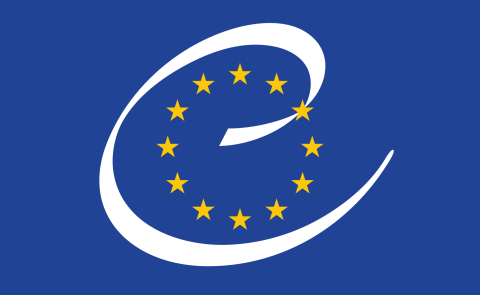
Armenia Strengthens Ties with Council of Europe
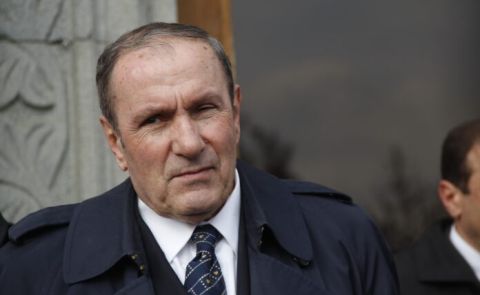
Former Armenian President Labels Pashinyan a Traitor and Blasphemer
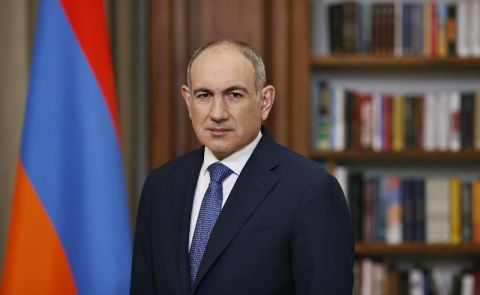
Pashinyan Addresses Key Issues on Church, National Future, and Fund Allegations
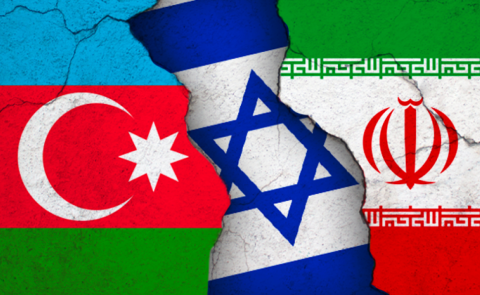
Azerbaijan Calls for 'Dialogue and Diplomatic Resolution' Between Israel and Iran
